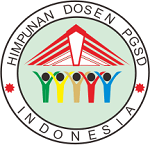The Editorial Board of JGK (Jurnal Guru Kita) has realized that plagiarism is an unacceptable act. Therefore, we have authorized the following policy that stipulates specific actions (penalties) against cases of identification of plagiarism or similarity in articles submitted for publication in the JGK (Jurnal Guru Kita). JGK (Jurnal Guru Kita) will use Turnitin software to check the originality of the article manuscript and compare it with the final version of the article ready for publication. We allow up to 24% similarity in submitted papers (exclude quote & bibliography). If a similarity index of more than 24% is found, the article will be returned to the author for correction and resubmission.
Each paper must be original, not previously published, and not submitted for publication elsewhere. Any material taken directly from other sources must be clearly identified through indentation, quotation marks, and indication of the source.
If any text exceeds fair use standards (which we define as more than two or three sentences or the equivalent) or if any graphic material is taken from another source, then permission from the copyright holder should be obtained, where possible, along with an indication of the original source.
When plagiarism is detected, the Editor-in-Chief will review the paper and will take appropriate action according to the level of plagiarism identified, in accordance with the following guidelines:
Level of Plagiarism
Minor Plagiarism:
This involves plagiarizing a small number of sentences or short paragraphs from another manuscript without taking significant data or ideas from another paper or publication.
Action: The author will be given a warning and asked to correct the manuscript and cite the original source correctly.
Intermediate Plagiarism:
This involves plagiarizing significant data, paragraphs, or sentences from an article without including appropriate citations from the original source.
Action: The submitted article will be automatically rejected.
Severe Plagiarism:
This includes plagiarism that involves a large part of the article and includes reproduction of original results (data, formulations, equations, laws, statements, etc.), ideas, and methods that have been presented in other publications.
Action: The paper will be automatically rejected and the author will be prohibited from submitting further articles to the journal.












